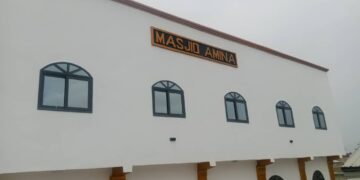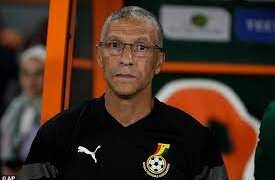A 24-year-old ex-convict, Richard Oppong recounts how a soldier’s motorbike, which was stolen in his possession, got him six months jail term.
Narrating his struggles to Crime Check Foundation (CCF) during a monitoring exercise on effects of vagrancy laws, the ex-convict said he was a mechanic and his job was thriving until the unfortunate incident, which sent him to jail.
The monitoring exercise was led by the foundations’ Community Monitoring Team (CMT) as part of the implementation of the “Decriminalizing Vagrancy Laws and Advocacy project, which is being implemented in twelve (12) Metropolitan, Municipal and Districts Assemblies (MMDAs) across Greater Accra, Central and the Ashanti Regions of Ghana.
According to Oppong, a soldier who worked at the 37 Military Hospital in Accra sought his services to repair his motorbike but thieves stole the bike at night.
He claimed the bike was stolen together with others, which were beyond repairs but the army officer suspected he had sold the bike.
“The soldier thought I was telling him lies so that I can get away with the bike so he harassed me and took me to the police station where I was subsequently detained,” he said.
Oppong said he was put before court without legal representation, and “jailed for six (6) months because the motorbike could not be retrieved.”
The young ex-convict said re-integrating into society has been difficult due to stigma.
He said he is homeless and currently lives in Ejisu near Kumasi since he came out of prison working as driver’s mate.
The orphaned young man said he hardly makes enough to earn a decent living and therefore needs support to re-establish himself.
About the CCF-OSIWA Project:
The project which is funded by the Open Society Initiative for West Africa (OSIWA) seeks to create an enabling environment for vagrants (including the homeless and other voiceless persons) to know, claim and exercise their rights to end criminalization of homelessness and poverty in Ghana. The intervention is consistent with Sustainable Development Goal #16.3: Justice for All by 2030 and an opinion ruling on 4th December, 2020, by the African Court on Human and Peoples’ Rights, that vagrancy laws or laws which tend to affect mainly the poor and homeless persons contravene the African Charter on Human and Peoples’ Rights.
About OSIWA:
Established in 2000, the Open Society Initiative for West Africa (OSIWA) is a grant-making and advocacy organization focused on equality, justice, democratic governance, human rights and knowledge generation. It is part of the global network of Open Society Foundations spread across 37 countries around the world.





























